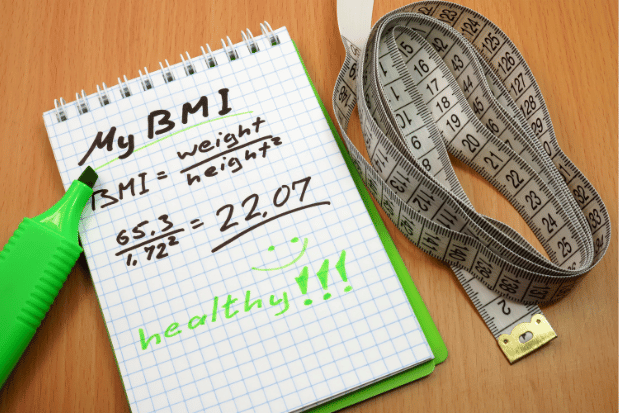
Passionate & Certified Nutritionist
Introduction
In today’s fast-paced world, maintaining good health is crucial for a fulfilling life. While various nutrients play essential roles in our well-being, one particular vitamin stands out for its wide-ranging benefits: Vitamin D3. Let’s dive into the world of Vitamin D3 and discover why it is essential for optimal health, explore the significance of Vitamin D3, its sources, benefits, and the potential risks associated with its deficiency.
What is Vitamin D3?
Vitamin D3, also known as cholecalciferol, is a fat-soluble vitamin that belongs to the family of compounds collectively known as Vitamin D. It is synthesized in the skin when exposed to sunlight and can also be obtained from certain foods and supplements. Vitamin D3 plays a crucial role in maintaining healthy bones, supporting the immune system, and regulating various physiological processes within the body.
Importance of Vitamin D3
Vitamin D3 is vital for overall health and well-being. One of its primary functions is to facilitate the absorption and utilization of calcium and phosphorus, which are essential for bone health and development. It helps in maintaining proper bone density, reducing the risk of fractures and osteoporosis. Additionally, Vitamin D3 is involved in modulating the immune response, supporting cardiovascular health, promoting muscle function, and influencing gene expression.
Sources of Vitamin D3
The primary source of Vitamin D3 is sunlight. When our skin is exposed to ultraviolet B (UVB) rays from sunlight, it triggers the synthesis of Vitamin D3. However, certain factors such as geographical location, time of year, sunscreen use, and skin pigmentation can affect the amount of Vitamin D3 produced. Apart from sunlight, Vitamin D3 can also be obtained from dietary sources such as fatty fish (salmon, mackerel, and tuna), fortified dairy products, egg yolks, and mushrooms exposed to ultraviolet light. Additionally, supplements are available for individuals who may have limited sun exposure or dietary restrictions.
Benefits of Vitamin D3
Vitamin D3 offers a wide array of benefits for our health. Here are some key advantages associated with maintaining sufficient Vitamin D3 levels:
- Bone Health: Vitamin D3 aids in calcium absorption, promoting optimal bone mineralization and reducing the risk of bone-related conditions like osteoporosis and fractures.
- Immune System Support: Vitamin D3 plays a crucial role in supporting immune function, helping the body defend against infections, autoimmune disorders, and chronic diseases.
- Mood and Mental Health: Adequate Vitamin D3 levels have been linked to improved mood and a reduced risk of depression, anxiety, and cognitive decline.
- Muscle Strength: Vitamin D3 contributes to muscle strength and function, reducing the risk of falls and enhancing overall physical performance.
- Heart Health: Some studies suggest that Vitamin D3 may have a positive impact on cardiovascular health by regulating blood pressure and reducing the risk of heart disease.
Vitamin D3 Deficiency
Vitamin D3 deficiency is a widespread concern, especially in regions with limited sunlight exposure or in populations with certain risk factors. Insufficient levels of Vitamin D3 can lead to various health issues, including:
- Weakened Bones: Inadequate Vitamin D3 levels can result in poor bone mineralization, leading to an increased risk of fractures and conditions like osteoporosis.
- Increased Infection Risk: Vitamin D3 plays a vital role in immune function, and its deficiency may compromise the body’s ability to fight off infections and diseases.
- Muscle Weakness: Low Vitamin D3 levels can contribute to muscle weakness, pain, and impaired physical performance.
- Mood Disorders: Research suggests a link between Vitamin D3 deficiency and an increased risk of mood disorders, such as depression and seasonal affective disorder (SAD).
How to Get Sufficient Vitamin D3
To maintain adequate Vitamin D3 levels, it is essential to adopt strategies that ensure proper intake and synthesis. Here are some recommendations:
- Sun Exposure: Spend time outdoors in sunlight, especially during midday when UVB rays are most intense. Aim for 10-30 minutes of sun exposure on the face, arms, and legs without sunscreen, depending on your skin type and geographical location.
- Dietary Sources: Incorporate Vitamin D3-rich foods into your diet, such as fatty fish (salmon, mackerel, and tuna), fortified dairy products, egg yolks, and mushrooms exposed to ultraviolet light.
- Supplements: Consult with a healthcare professional to determine if Vitamin D3 supplementation is necessary, especially for individuals with limited sun exposure or specific health conditions that may affect absorption.
- Regular Check-ups: Get your Vitamin D levels tested regularly to ensure you are within the optimal range. This will help you and your healthcare provider monitor your Vitamin D3 status and make any necessary adjustments to your supplementation or lifestyle.
Risks and Side Effects
While Vitamin D3 is generally safe when taken in appropriate doses, excessive intake can lead to toxicity. It is important to follow recommended dosage guidelines and consult with a healthcare professional before starting any new supplementation regimen. Some potential risks and side effects associated with excessive Vitamin D3 intake include:
- Hypercalcemia: Elevated levels of calcium in the blood, which can lead to symptoms like nausea, vomiting, excessive thirst, frequent urination, and kidney problems.
- Kidney Stones: Excess calcium can contribute to the formation of kidney stones in susceptible individuals.
- Digestive Issues: Some individuals may experience digestive discomforts, such as nausea, constipation, or diarrhea when taking high doses of Vitamin D3.
FAQs (Frequently Asked Questions)
Sunlight is an excellent source of Vitamin D3, but the amount synthesized depends on various factors. Factors like geographical location, time of year, sunscreen use, and skin pigmentation can affect the amount of Vitamin D3 produced. Incorporating dietary sources and considering supplementation may be necessary to maintain sufficient levels.
Symptoms of Vitamin D3 deficiency can vary but may include fatigue, muscle weakness, bone pain, frequent infections, mood disorders, and impaired wound healing. However, these symptoms can also be associated with other health conditions, so it is essential to consult with a healthcare professional for proper diagnosis.
Vitamin D3 is primarily found in animal-based sources. Plant-based sources provide Vitamin D2, which is less potent than Vitamin D3. However, some foods like fortified plant-based milk and mushrooms exposed to ultraviolet light can provide small amounts of Vitamin D3.
Excessive intake can lead to toxicity. It is crucial to follow recommended dosage guidelines and consult with a healthcare professional to determine the appropriate dosage for your specific needs.
Our bodies have a natural mechanism that limits the synthesis of Vitamin D3 from sunlight. However, prolonged and excessive exposure to sunlight without protection can increase the risk of sunburn and skin damage. It is important to strike a balance between sun exposure and sun protection measures like using sunscreen and wearing protective clothing.
Remember, it is always advisable to consult with a healthcare professional to determine the best approach for your individual needs. Regular check-ups and monitoring of Vitamin D levels can help guide you in maintaining optimal levels and making any necessary adjustments to your supplementation or lifestyle. So let’s embrace the power of Vitamin D3 and unlock its potential for a healthier and more vibrant life. Soak up the sun, savor nutritious foods, and prioritize your well-being. With the right balance of Vitamin D3, you can thrive and enjoy the benefits of this essential nutrient.
Thank you for joining us on this journey to explore the importance of Vitamin D3. Here’s to your health and vitality!

















